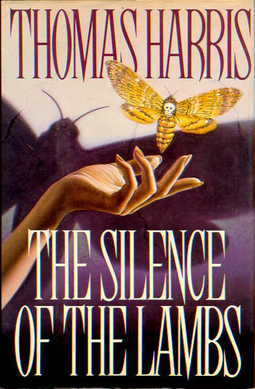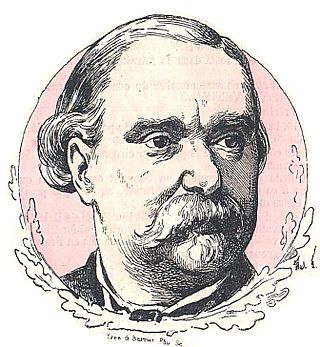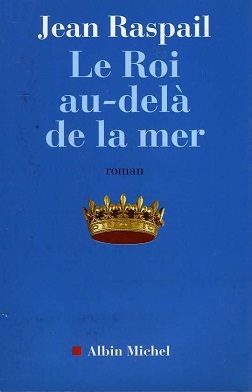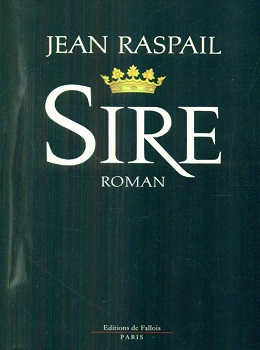An antipope is a person who makes a significant and substantial attempt to occupy the position of Bishop of Rome and leader of the Catholic Church in opposition to the legitimately elected pope. At times between the 3rd and mid-15th centuries, antipopes were supported by important factions within the Church itself and by secular rulers.

The École spéciale d'architecture is a private school for architecture at 254, boulevard Raspail in Paris, France. The diploma from the École spéciale d'architecture (DESA), recognized by the State since 1934, entitles the holder to registration with the Order of Architects.

Jean Raspail was a French explorer, novelist, and travel writer. Many of his books are about historical figures, exploration and indigenous peoples. He was a recipient of the prestigious French literary awards Grand Prix du Roman and Grand Prix de littérature by the Académie française. The French government honoured him in 2003 by appointing him to the Legion of Honor, with the grade of Officer. Internationally, he is best known for his controversial 1973 novel The Camp of the Saints, which is about mass third-world immigration to Europe.

Jame Gumb is a fictional character and the main antagonist of Thomas Harris's 1988 novel The Silence of the Lambs and its 1991 film adaptation, in which he is played by Ted Levine. In the film and the novel, he is a serial killer who murders overweight women and skins them so he can make a "woman suit" for himself. In the television series Clarice, he is portrayed by Simon Northwood.

The Camp of the Saints is a 1973 French dystopian fiction novel by author and explorer Jean Raspail. A speculative fictional account, it depicts the destruction of Western civilization through Third World mass immigration to France and the Western world. Almost forty years after its initial publication, the novel returned to the bestseller list in 2011.

François-Vincent Raspail, L.L.D., M.D. was a French chemist, naturalist, physician, physiologist, attorney, and socialist politician.

The Silence of the Lambs is a 1988 psychological horror novel by Thomas Harris. Published August 29, it is the sequel to Harris's 1981 novel Red Dragon and both novels feature the cannibalistic serial killer and brilliant psychiatrist Dr. Hannibal Lecter. This time, however, he is pitted against FBI trainee Clarice Starling as she works to solve the case of the "Buffalo Bill" serial killer.

Jean-Yves Le Gallou is a French politician. He served as a member of the European Parliament from 1994 until 1999, representing the National Front. Since 2022, he has been a member of Reconquête.

Benjamin Raspail, was a painter-engraver and politician of the French Third Republic. He was the son of François-Vincent Raspail. Like his father, he was classed as extreme-left, and he went into exile in Belgium with his father from 1853.

The Musée d'art contemporain de Lyon is a museum devoted to contemporary art, located in the 6th arrondissement of Lyon, in the Cité Internationale, next to the cinema, in front of the Parc de la Tête d'Or. It had over 42,000 visitors in 2007.

Moi, Antoine de Tounens, roi de Patagonie is a 1981 novel by the French writer Jean Raspail. It tells the story of the French adventurer Orélie-Antoine de Tounens, who in 1860 declared the independence of the Kingdom of Araucanía and Patagonia, located in South America, where he held the title of king for the next 18 years. The sovereignty of the country was not respected by Chile and Argentina, whose authorities regarded Tounens as insane. The title of the book means "I, Antoine de Tounens, King of Patagonia".

Who Will Remember the People... is a 1986 novel by the French writer Jean Raspail. It tells the history of the Alacalufe people, a largely extinct South American tribe, throughout the centuries. The two main characters reappear in each generation. The native name of the Alacufs is "Kaweskar", which means "the people". Raspail had met members of the tribe in the early 1950s which had made an impression that stayed with him.

L'Anneau du pêcheur is a 1995 novel by the French writer Jean Raspail. The narrative has two timelines: the time of Benedict XIII, the last antipope of the Avignon Papacy, and contemporary times, when the Catholic Church tries to discover Benedict's successor, as it turns out that his line of papacy has continued in secret throughout the centuries. The book received the Prix Maison de la Presse and the Prince Pierre Foundation's Literary Prize.

Blue Island is a 1988 novel by the French writer Jean Raspail. The narrative is set in Touraine during World War II, where a charismatic boy gathers his friends on an island, where they play war games which become increasingly more interlinked with reality. The book was published in English in 1991, translated by Jeremy Leggatt.

Welcome, Honourable Visitors is a 1958 novel by the French writer Jean Raspail. It tells the story of six foreign tourists who travel in Japan and stay at an inn. It was Raspail's first novel, having previously published several travel books. It was first published as Le Vent des Pins, which is the name of the inn in the story, but changed title when it was republished in 1970.

Le Roi au-delà de la mer is a 2000 novel by the French writer Jean Raspail. The book is written as a series of letters from a mentor to the young king of France, who sets up his court on a small island in order to avoid the disgracefulness of the contemporary world. Raspail uses the book to reject what he describes as "magazine princes" and champions a monarchism that is not merely for decorative purposes.
Le Jeu du Roi is a 1976 novel by the French writer Jean Raspail. It focuses on the subject of the Kingdom of Araucanía and Patagonia. It was published by éditions Robert Laffont.

Sire is a 1991 novel by the French writer Jean Raspail. It tells the story of how monarchy returns to France as the 18-year-old Philippe Pharamond de Bourbon ascends the throne in 1999. The novel received the Grand prix du roman de la Ville de Paris and the Alfred de Vigny Prize.
The lycée Raspail is a public lycée located in the 14th arrondissement of Paris. It is a general technological and professional lycée which is known as a trade Lycée "of energy and the environment". It offers courses from second year and licences to pass the general bac, the professional bac, preparatory classes and BTS FED, MS, ET, TC; it also offers around 150 apprenticeships with 5 CFA and more than a hundred adults studying the GRETA GPI2D to prepare for different professional bacs, BTS and licences.
Blue Island, Illinois is a city in the United States. It may also refer to:













